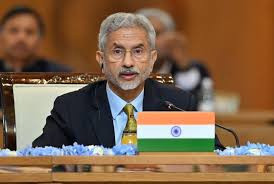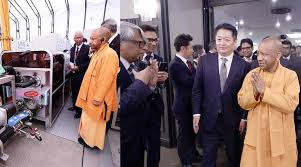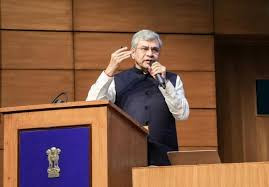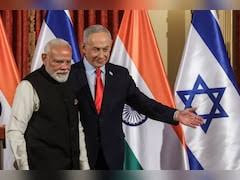Jaishankar Reaffirms India’s Stand: Engagement with Pakistan to Remain Strictly Bilateral

IIE DIGITAL DESK : May 16, 2025 — Minister S. Jaishankar has once again underlined India’s firm position that all matters concerning Pakistan will be addressed solely through bilateral dialogue, ruling out the involvement of any third party. Speaking at a diplomatic conclave in the capital, the minister reiterated New Delhi’s consistent policy that direct engagement is the only acceptable channel for discussing issues with Islamabad, particularly those related to security and territorial integrity.
Responding to questions about international suggestions for third-party mediation or multilateral forums to ease tensions between the two nuclear-armed neighbors, Jaishankar firmly stated that India does not entertain any external intervention in its relationship with Pakistan. “Our position is principled, rooted in precedent, and has not changed. All matters between India and Pakistan are strictly bilateral. There is no role for any third party,” he said.
Jaishankar's remarks come amid renewed global focus on South Asia, with some international observers hinting at the need for mediation in the wake of occasional cross-border incidents and heightened rhetoric. However, India has consistently referred to the Simla Agreement of 1972 and the Lahore Declaration of 1999 as the foundational frameworks for bilateral engagement. Both documents categorically state that India and Pakistan must resolve their disputes through direct dialogue without external involvement.
The External Affairs Minister also emphasized the precondition for any future talks: an end to cross-border terrorism. “There cannot be meaningful dialogue when terrorism continues to be sponsored from across the border. Peaceful relations require peaceful behavior,” he said, referring to India’s long-standing accusation that Pakistan supports militant groups operating in Jammu and Kashmir.
India and Pakistan have had a turbulent relationship since their partition in 1947, with several wars, border skirmishes, and frequent diplomatic standoffs. In recent years, formal diplomatic engagement has stalled, especially after the 2019 Pulwama attack and the subsequent Balakot airstrike, which sharply escalated tensions between the two sides.
Although there have been intermittent backchannel contacts and people-to-people initiatives, there has been no formal resumption of the comprehensive bilateral dialogue process. Jaishankar’s statement indicates that India is unlikely to soften its stance unless Islamabad takes verifiable steps to dismantle terror networks operating from its soil.
Pakistan has repeatedly attempted to bring international attention to the Kashmir issue, raising it at platforms such as the United Nations and the Organization of Islamic Cooperation (OIC). However, India has firmly maintained that Jammu and Kashmir is an internal matter and not subject to external debate. Jaishankar, without naming specific countries or groups, said, “There are those who try to amplify Pakistan’s narrative. But the world is increasingly aware of the facts. Sovereignty and security are not open for negotiation.”
The statement was welcomed across India’s political spectrum, with opposition parties largely supporting the government’s position on foreign policy matters related to Pakistan. National security experts, too, endorsed Jaishankar’s clear articulation of India’s diplomatic red lines. “This is about safeguarding our national interests. Bilateralism, in this context, is not just strategy—it’s a matter of principle,” said Major General (Retd.) Sudhir Sharma, a defense analyst.
As India prepares for a series of global engagements, including G20 follow-ups and strategic dialogues with Quad partners, its assertive stance on regional security is expected to resonate strongly. With Jaishankar’s firm message, the government has once again made it clear that any future progress with Pakistan will depend entirely on Islamabad’s ability to curb terror activities and create a conducive atmosphere for peace.
You might also like!


























